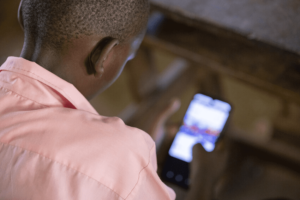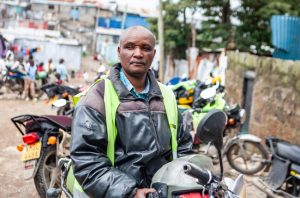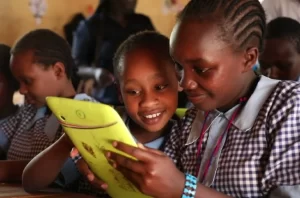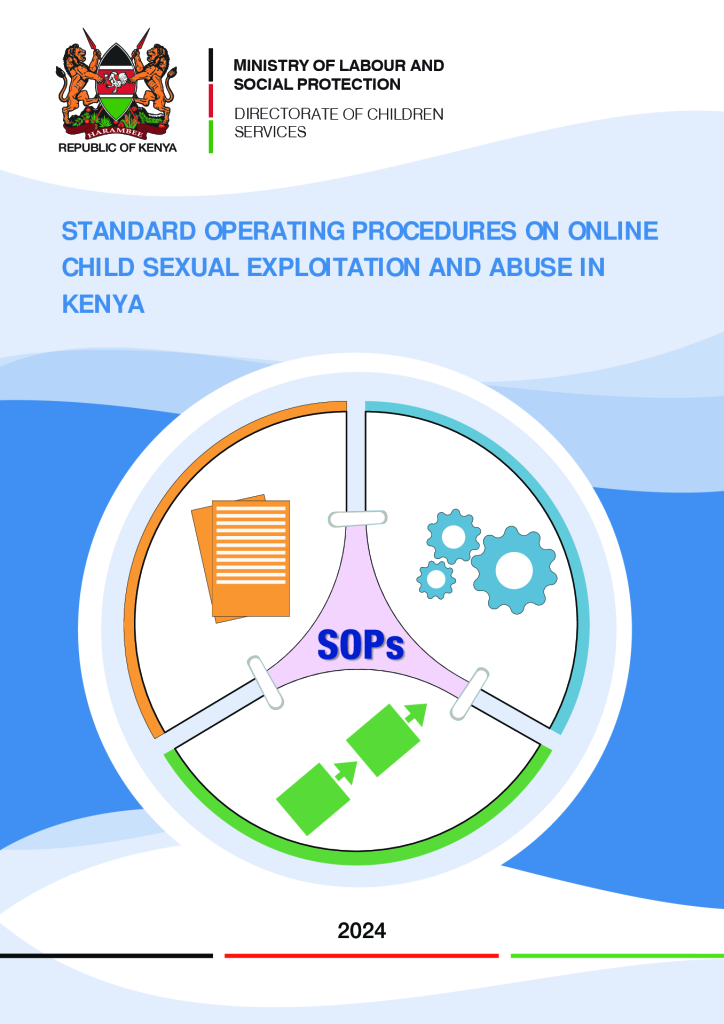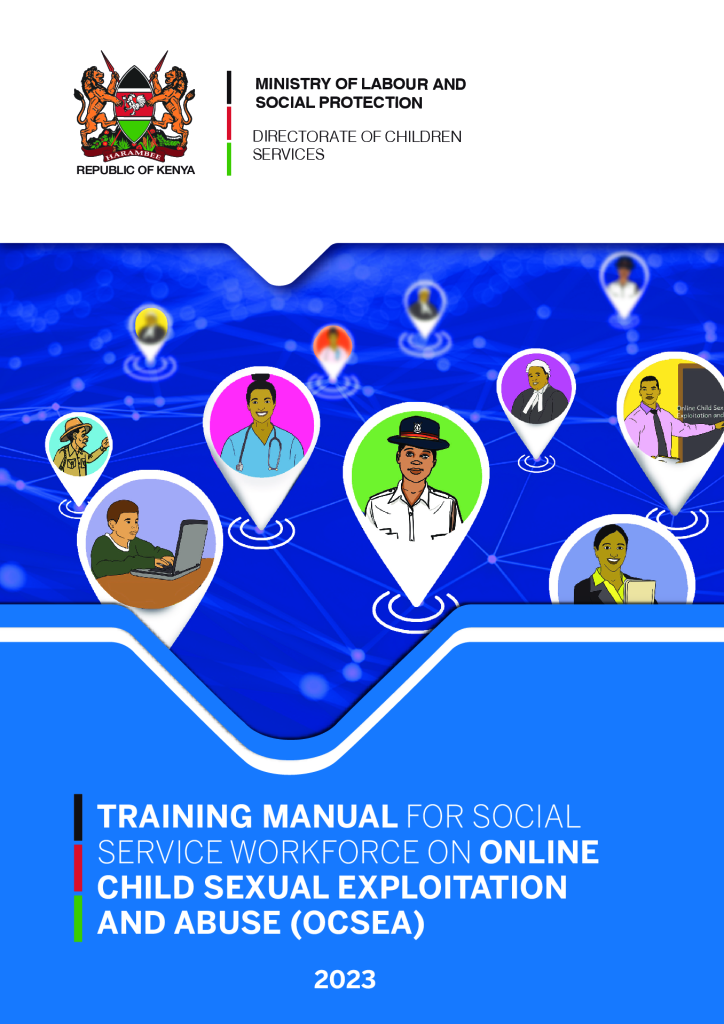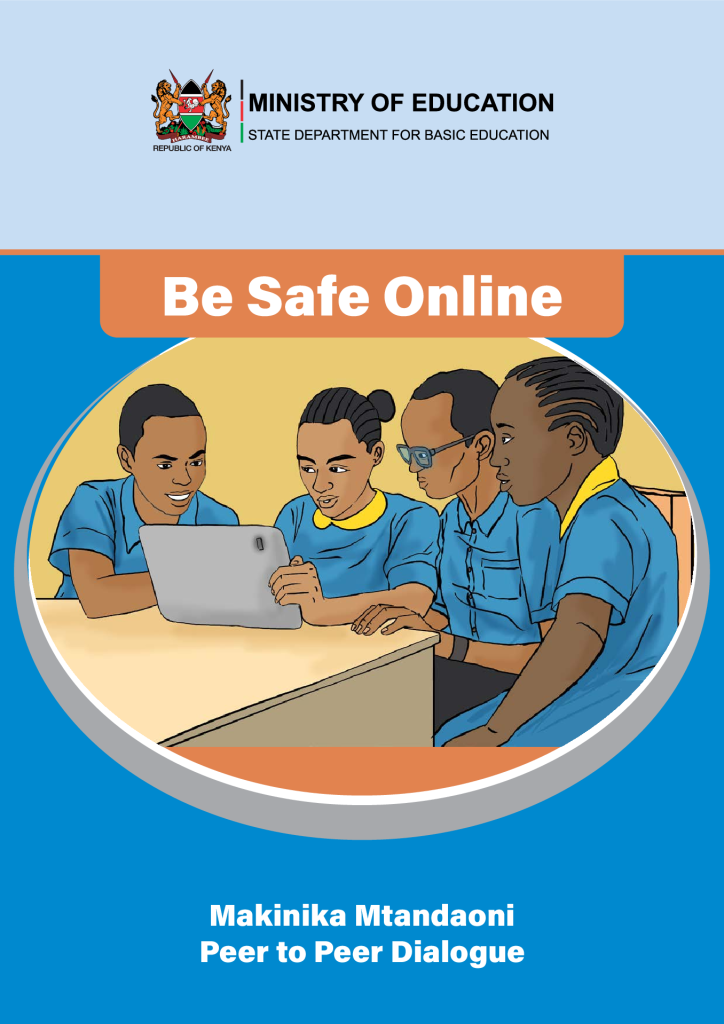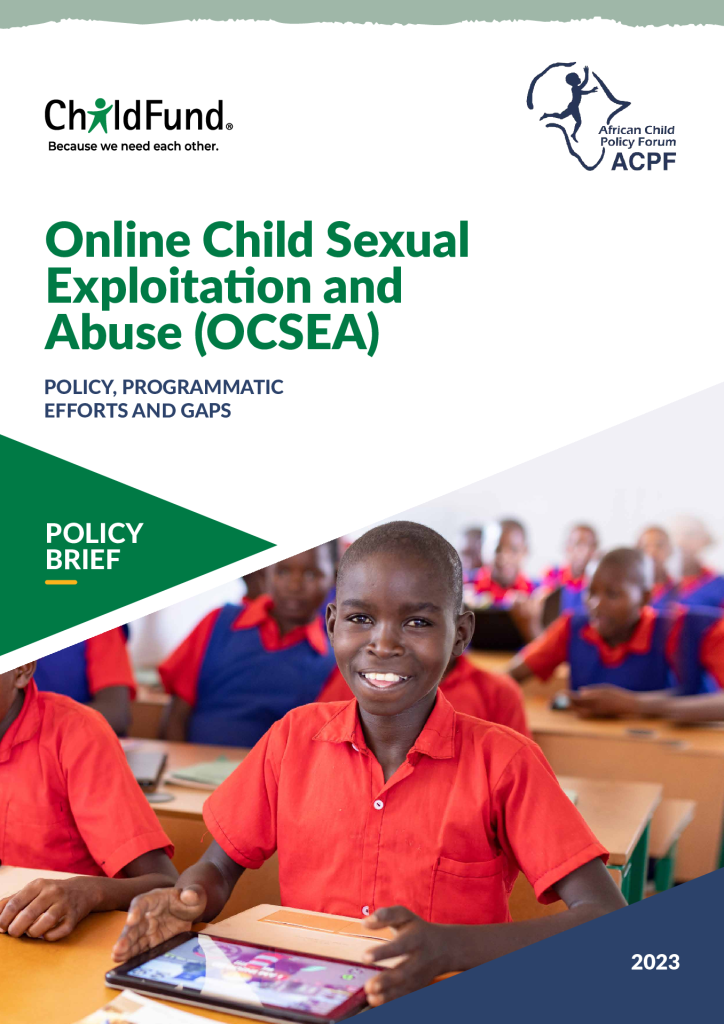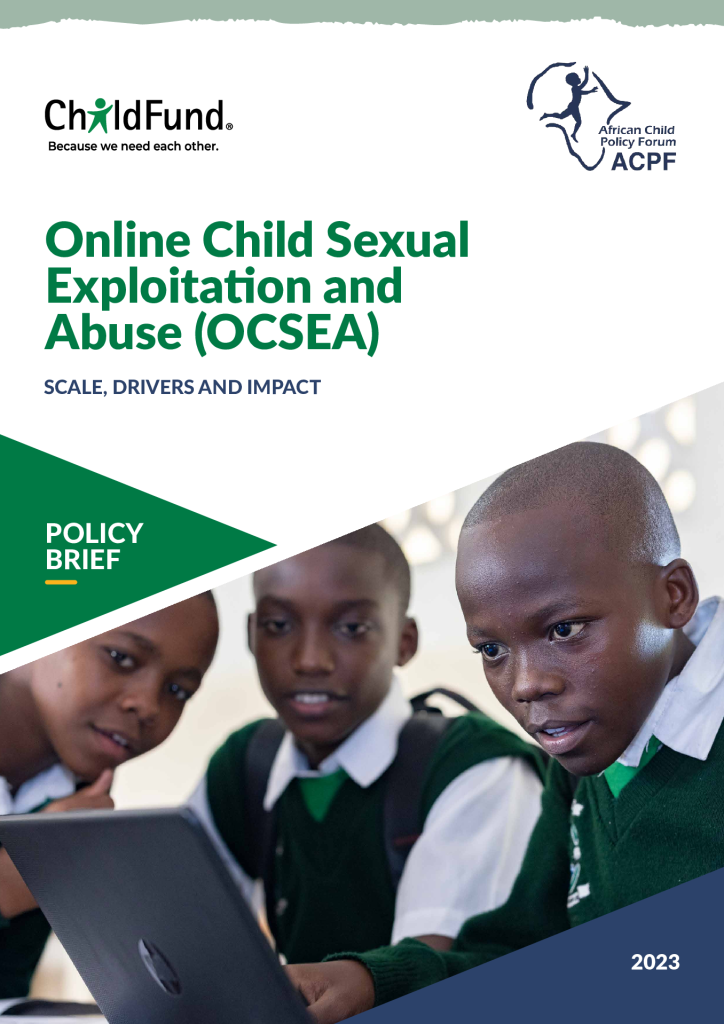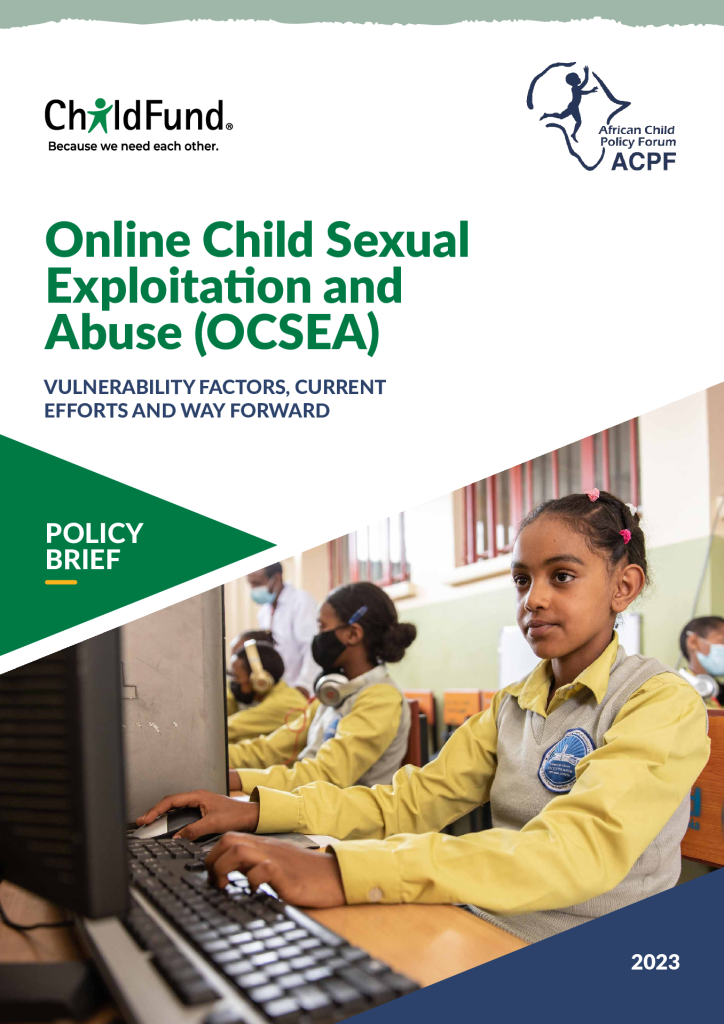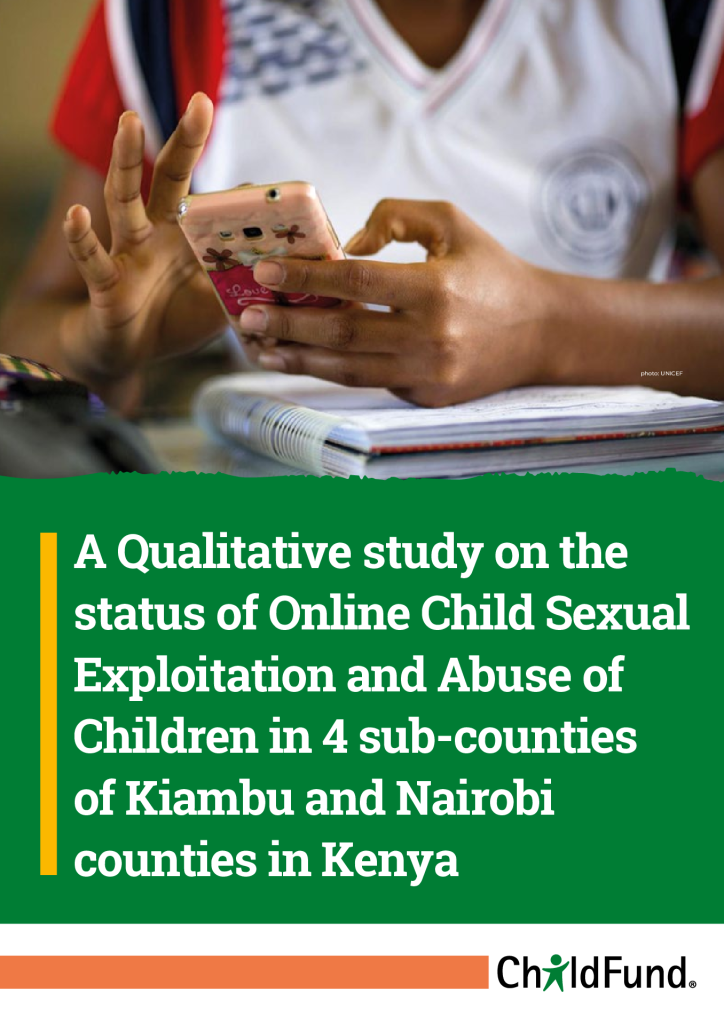Safe Community Linkages for Internet Child Safety (Safe CLICS)
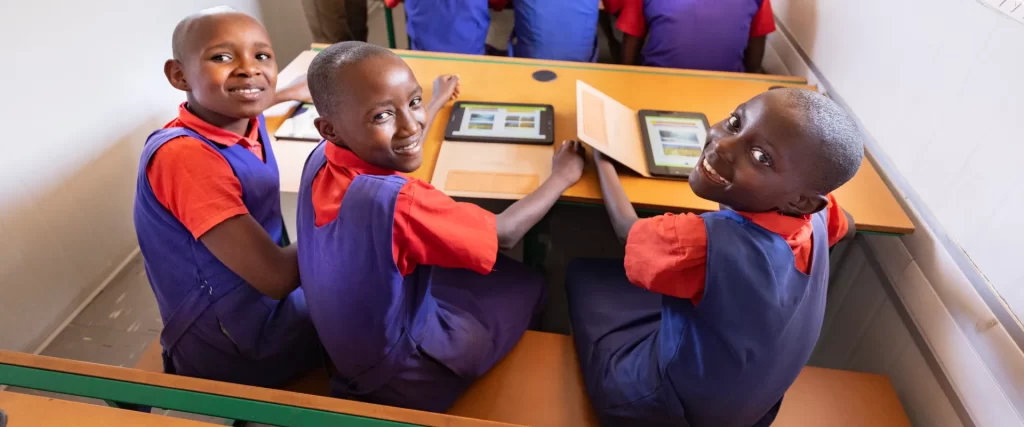
Kenya’s internet penetration rate continues to grow rapidly. As of January 2022, the Communication Authority of Kenya reported that the total number of data and internet subscriptions increased to 44.8 million. With the progress made towards universal internet connectivity, it is ever-more pressing to invest in children’s safety and protection online.
This project aims to strengthen the capacity, networks, and systems to make the internet safe for children in Kenya. We believe that the internet should be a platform for the good of the Kenyan child, however, recent data from the Kenyan law enforcement indicates that they received 14,434 cases of online sexual exploitation and abuse cyber tips from the US National Centre for missing and exploited children. Anecdotal evidence suggests cases are mainly occurring in Nairobi and Mombasa.
Strengthen Kenya’s national infrastructure
-
- Development of Standard Operating Procedures (SOPs) on Online Child Sexual Exploitation and Abuse (OCSEA) and guidelines on interagency coordination
- Advocate for increased national government funding for online child protection agencies and activation of the Victim Protection Trust Fund
- Support the DCS to develop a National OCSEA manual, and child-friendly outreach tool
- Support increased communication and collaboration between government stakeholders and technology companies
- Support the dissemination of Children Act 2022 through children forums.
Improve early intervention to prevent victimization of children, and victim support to assist in recovery.
-
- Build teachers’ and school leadership’s capacity in identifying and preventing OCSEA and supporting OCSEA victims through referrals
- Strengthen OCSEA Survivor linkage to referral services
- Train and support peer educators to hold dialogue forums on OCSEA
Engage families and caregivers in preventing the sexual exploitation and abuse of children and responding to harmful or otherwise unwanted experiences online
-
- Facilitate caregivers’ education on OCSEA and the digital environment
- Strengthen community structures to ensure sustainable OCSEA support for caregivers and build up community surveillance efforts
- Improve caregivers’ understanding of OCSEA reporting and referral mechanisms

Safe Online
Safe Online is a UNICEF-hosted global initiative dedicated to keeping children safe in the digital world. It focuses on preventing and responding to the growing threat of digital harms to children. Initially part of the Global Partnership to End Violence Against Children (‘End Violence’), launched by the UN Secretary-General in 2016, Safe Online has been investing in global efforts to protect children from online risks since its inception.
Role: Safe Online is the main funder of the Safe CLICS Project, effective 1st December 2022 to March 2025, the project will run over a period of three years.
Learn more at https://safeonline.global/
ChildLine Kenya
Childline Kenya is a non-profit organization dedicated to protecting and supporting children from abuse and neglect. It operates a 24-hour helpline (116) that provides counseling, guidance, and emergency response services for children and families. Childline Kenya also conducts advocacy, raises awareness about child protection, and collaborates with government and other agencies to create a safer environment for children.
Role: Promoting children’s rights on online safety and child protection and provides community outreach, enabling children to voice their concerns, be listened to and linking survivors with essential services through a coordinated referral system nationwide. The organization works closely with the Ministry of Health, and connects children to services in mental health and psychosocial support, as well as conducting case management.
Learn more at https://childlinekenya.co.ke/
Life Skills Promoters
LifeSkills Promoters (LISP) is a not-for-profit national development organization that has been empowering and building the capacity of young people through life skills. LISP is the pioneer of introduction of life skills programs within the education curriculum through collaboration with the Kenya Institute of Curriculum Development (KICD) and the Ministry of Education. LISP uses a strength-based approach to programs and the integration of life skills and social asset-building strategies to improve outcomes for children, youth and their families.
Role: LISP works with schools, and community groups to raise awareness about online safety among children. They educate young people about the risks of the digital world and equip them with tools and knowledge to protect themselves from exploitation and abuse and to navigate online spaces safely.
Learn more at https://lifeskills.or.ke/
- Kilifi
- Mombasa
- Nairobi City
- Kiambu
Strengthened national infrastructure, focusing on social care capacity, to prevent and respond to online offending against children.
-
- National OCSEA manual, and child-friendly outreach tool developed.
- Enhanced communication and collaboration between government stakeholders and technology companies.
- Conducted advocacy for increased national government funding for online child protection agencies and activation of the Victim Protection Trust Fund.
Improved early intervention to prevent victimization of children, and victim support to assist in recovery.
-
- Teachers’ and school leadership’s capacity in identifying and preventing OCSEA and supporting OCSEA victims strengthened peer educators’ capacity to hold dialogue forums on OCSEA at school level. has been enhanced.
- Strengthened linkage of survivors to referral services.
Increased engagement by families and caregivers in preventing the sexual exploitation and abuse of children and responding to harmful or otherwise unwanted experiences online
-
- Strengthened linkages of OCSEA survivors to referral services have become stronger
- Parent /caregiver knowledge and skills on OCSEA and digital environment has been enhanced
- Community structures strengthened to ensure sustainable OCSEA support for caregivers and build up community surveillance efforts
Latest News
Contact Us
For more information, please write to: BMuema@childfund.org or MSum@childfund.org

